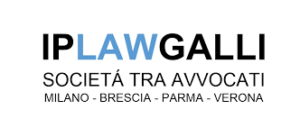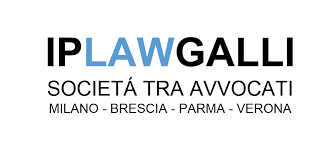
Introduction:
Italian newspapers recently reported that in the Province of Brescia (an area in Lombardy badly affected by COVID-19), valves for respirators used in hospitals in emergency COVID-19 therapy have been replicated locally with a 3D printer (the original valves are reproduced and patent protected) to cope with valve shortages and the impossibility of
receiving them in time from the authorised manufacturer.
In this case, the fact that a 3D printer is being used for non-commercial production purposes could be per se relevant as an exemption from liability. The scope of Italian patent protection expressly excludes “acts carried out in private and for non-commercial purposes” (Article 68 of the Italian Industrial Property Code (hereinafter, the IIPC)).
Such a rule makes no distinction and therefore does not provide for the general limitation provided for derogations to copyright protection, which may “only be applied in certain special cases which do not conflict with a normal exploitation of the work or other subjectmatter and do not unreasonably prejudice the legitimate interests of the rightholder”.(1)
However, some scholars argue that the interpretation of this exemption in the patent field should be reconsidered in view of, among other things, the principle of equality set out in Article 3 of the Constitution, which requires equivalent situations to be regulated in a corresponding way.
Possible exemptions
A consistent restrictive interpretation has been given to the so-called ‘galenic exception’, which considers patent protection unenforceable ag ainst the “extemporaneous preparation, and per unit, of drugs in pharmacies on prescription, and drugs prepared in this way”. The scope of application of this exemption, also provided by Article 68 of the IIPC, has been limited to the hypothesis that “no industrially manufactured active ingredients are used”.
In addition, this exemption excludes any professional conduct of contributory infringement, such as the supply by a professional – even to private individuals – of the essential means to allow infringements and, in particular, the supply of files or projects made by third parties with the precise purpose of allowing the reproduction of a patented product.
The rule is now contained in Article 26 of the Agreement on a Unified Patent Court; the Italian legislature has also implemented it, introducing a corresponding rule in Article 66 of the IIPC.
Nevertheless, it must be questioned whether, more generally, there are other exemptions in Italian legislation that can apply to emergency situations such as the COVID-19 outbreak. In this regard, the general rule provided by Article 2045 of the Civil Code is relevant, according to which:
When the person who has committed the harmful act has been forced by the need to save himself or others from the current danger of serious personal injury, and the danger has not been voluntarily caused by him nor was otherwise avoidable, the injured party is owed an indemnity, the amount of which is remitted to the fair appreciation of the judge.
The fact that the rule speaks of ‘indemnity’ and not of ‘compensation for damages’ indicates that the conduct it provides for is considered lawful under Italian law, which in fact provides the same exemption under Article 54 of the Criminal Code. Moreover, the rule does not provide for the criteria to determine indemnities. Further, the Supreme
Court of Cassation has established that a ruling which, exercising its equitable judgment, liquidates in favour of the injured party the same amount of money that would have been liquidated as compensation for damages is lawful.(2)
However, in the event that a patent owner or its successors in title is unable to supply a manufacturer’s products in time to meet a need, there would be little possibility of any compensation other than a reasonable royalty (as held by the Court of Milan in an infringement case in which the patent owner aimed to supply its products exclusively to a single customer).(3)
Under Article 2045 of the Civil Code – which, as mentioned above, considers such conduct lawful – the remedy of the disgorgement of profits does not apply. Instead, this remedy applies “in any case” in non-exempted infringement cases (for which it is due even in the absence of intent or negligence on the infringer, according to prevailing Italian case law). Moreover, in other cases, the Supreme Court of Cassation has stated that “the indemnity provided by Article 2045 of the Italian Civil Code… constitutes a minus with respect to the ordinary compensation for damages” and,
above all, it stressed that:
there must always be a causal link between the conduct forced by necessity and the damaging event, that is to say, that the damage has to be an immediate and direct consequence of the carried out conduct, and, thus, no indemnity is due in the case where it can be excluded that the damage complained of would have occurred as well even in the absence of said conduct.(4)
This would appear to be the case with the goods which the infringed rights holder would not have supplied in any event, because the ’emergency’ need, if not satisfied as a matter of urgency, would simply have disappeared.
A third party whose conduct infringes a patent and intends to invoke the exemption under Article 2045 of the Civil Code should prove the conditions of necessity. In this regard, it would be insufficient (for example) to cite the existence of the pandemic, since it is necessary to give evidence of the shortage of the drug or device incorporating the infringed patent in Italy (or the specific location of the necessity, without it being possible to obtain it in time in the necessary quantities). As regards the evidence, for instance, the National Health Service issuing open invitations to
tender (or the regions issuing tenders for hospital supplies) would be important; better still if such invitations were specifically motivated by the impossibility of purchasing the necessary quantities of drugs from the patent holder and its successors in title. The proof of participation in tenders in which the owner has made no offers or has declared its willingness to supply drugs in smaller quantities than required would be useful too.
At least in theory in the IP field, compulsory licences (which are pay-as-you-go and non-exclusive licences) may also be considered. This is particularly true when they are provided for a failure to implement a patented invention or for an implementation that is “in serious disproportion with the needs of the country” for three years from the granting of the patent (or four years from the application, if this term expires after the first year) or if for three years the implementation is suspended or reduced to such an extent as to be in serious disproportion with the needs of the
country.
In Italy, such licences can now be granted to an infringer that gives evidence of good faith, which is normally identified in the blameless ignorance of infringing the patent, but which could also consist of the intention to use the patent to deal only with an emergency and being unable to obtain a contractual licence from the owner in time. However, it is doubtful whether the prerequisites of a compulsory licence can operate in cases where it is only temporarily impossible for the rights holder or its successors in title to satisfy market demands: the rule refers only to cases where
the serious disproportion with the needs of the country lasts for three years. It also presupposes that the licence applicant has first approached the licensor to obtain a contractual licence and also provides for a time-consuming administrative procedure for granting the licence, which, moreover, does not seem to be able to operate retroactively once it has been granted: all of which seem to limit the compulsory licence, as it is unsuitable to meet short-term needs. Nevertheless, it cannot be ruled out that Italy may follow the example of other countries, such as Canada and
Chile, which have amended their legislation to allow faster and more extensive recourse to compulsory licensing in the face of emergency situations, which is already permitted in these terms, for example, by Mexican legislation.
Article 124(6) of the Criminal Code is arguably more relevant, since it provides, in general terms (and therefore not only in the presence of a forcing necessity, as provided by Article 2045 of the Civil Code), that in IP right infringement matters, “in the application of sanctions, the courts take into account the necessary proportion between the
seriousness of the violations and the sanctions, as well as the interest of third parties”. This rule is provided for corrective measures and civil penalties ordered at the outcome of proceedings on the merits and has recently been applied taking into account precisely the right to health.
Italian case law considers that, even in preliminary injunction or seizure proceedings, a balance of interests must be made, which also takes into account the interests of third parties and primarily the public interest (since this is considered a general principle of Italian legislation) in order to establish which measures should be ordered in practice.
In this regard, there are decisions in which the seizure of an infringing product at hospitals has been denied (ie, an immunodiagnostic kit for the screening of hepatitis C in blood for the safety of transfusions) precisely on the basis of the prevalence of the right to health.(5) Thus, at the same time, preliminary injunctions seem unable to be granted if they risk the right to health of individuals – a constitutional right in Italy.
This rule requires a balance to be struck between parties’ interests and to take into account not only the legitimate interests of third parties, but also the public interest when establishing penalties for infringement and has been codified in Article 124(6)bis of the IIPC.
A recent ruling by the Court of Milan allowed a company that had been held liable for violating a trade secret in the field of bone cement (considered both protectable and violated) to continue to comply with the contracts that it had already signed with the health facilities until their expiry (and therefore to supply them with the infringing product), rejecting the request made by the rights holder to prohibit this supply.(6) The latter rule refers only to the protection of trade secrets, having been introduced following the implementation of the EU Trade Secrets Directive 943/2016/EC), but it does not appear to be exceptional. It is therefore susceptible to a more general application based on a constitutionally oriented interpretation which considers the aforementioned principle of equality under Article 3 of the Constitution, which requires equivalent situations to be regulated in a corresponding way (ie, with the same ‘ratio’).
Comment
Existing Italian laws provide for emergency needs to be considered when assessing the lawfulness and potential punishability of conduct which, under normal conditions, would constitute patent infringement. For further information on this topic please contact Cesare Galli at IP Law Galli by telephone (+39 02 5412 3094) or email ([email protected]). The IP Law Galli website can be accessed at www.iplawgalli.it.
Endnotes
(1) Article 5(5) of the EU Information Society Directive (2001/29/EC), which transposes the so-called ‘three-step test’ also codified by Article 13 of the Agreement on Trade-Related Aspects of Intellectual Property and previously by Article 9(2) of the Berne Convention. (2) Supreme Court of Cassation, Civil Section III, 18 November 2010, 23275. 27/4/2020 Patent infringement to deal with COVID-19 emergency: possible exemptions – Newsletters – International Law Office https://www.internationallawoffice.com/Newsletters/Intellectual-Property/Italy/IP-Law-Galli/Patent-infringement-to-deal-with-COVID-19-emergency… 4/4
(3) Court of Milan, 5 December 2017.
(4) Supreme Court of Cassation, Civil Section III, 21 December 2004, 23696.
(5) Court of Milan, order of 10 February 1997, Chiron Corp v Sorin spa, available in Giur ann dir ind, 1997, 615 et seq
and later confirmed by Court of Milan, order of 22 March 1997, ibidem, 646 et seq.
(6) Court of Milan, 29 October 2019, 9828.


